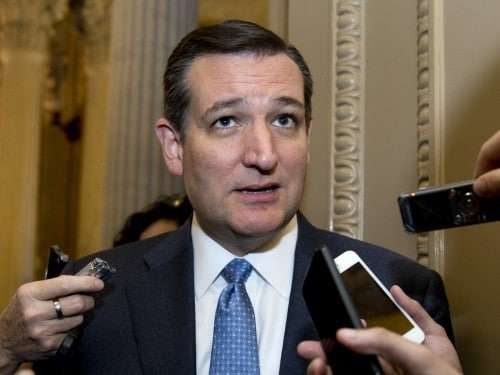The Volokh Conspiracy
Mostly law professors | Sometimes contrarian | Often libertarian | Always independent
New Jersey court rules that Ted Cruz is a "natural born citizen" eligible to become president

On Tuesday, New Jersey Administrative law Judge Jeff Masin ruled against a lawsuit claiming that Senator Ted Cruz is not eligible to become president because he is not a "natural born citizen." The plaintiffs claimed that Cruz is ineligible because, although he is the son of a US citizen, he was born in Canada (where his parents were living at the time). Judge Masin's opinion is notable for its detailed analysis of the evidence on the original meaning of the "natural born citizen" and recent scholarship on the subject. I think the opinion is well-reasoned and very persuasive.
Judge Masin relied considerably on legal scholar Michael Ramsey's excellent recent article on this subject. Prof. Ramsey has put up a thoughtful post about the decision at the Originalism Blog (a blog which is also cited in the opinion).
While Judge Masin relies almost entirely on originalist arguments, living constitutionalists have every reason to support his conclusion. Quite simply, there is no good living constitutionalist reason to interpret the "natural born citizen" requirement in a narrow way that would exclude people who have been American citizens since birth, but happen to have been born abroad. Even nonoriginalist critics of Cruz's eligibility generally rely on originalist arguments rather than trying to justify their position based on living constitutionalism. That is likely because there is no plausible reason to conclude that barring this category of citizens from running for the presidency benefits the nation in any way. Some of them are likely to be bad candidates, unfit for office. But the same thing can be said of numerous candidates born within the US. A least in the absence of an unequivocal textual requirement to the contrary (such as the rule that the president must be at least thirty-five years old), living constitutionalists should not interpret the Constitution in a way that categorically excludes large categories of citizens from eligibility for our highest office.
This ruling is the second decision on Cruz's eligibility. It follows in the footsteps of an an earlier Pennsylvania ruling that reached the same conclusion. But the New Jersey decision includes a more thorough analysis of the arguments on both sides.
The natural born citizen provision is in the Constitution, and courts have no choice but to try to interpret it and enforce it. And, as Judge Masin emphasizes, both sides in the debate over its original meaning have some serious arguments. But the dispute over Cruz's eligibility also underscores the case for getting rid of this ill-conceived requirement entirely. There are plenty of serious arguments both for and against Cruz's candidacy. I myself like his platform on some important issues, but have major reservations about his position on immigration, and his advocacy of the value added tax. But where he happened to be born and how he became a citizen have no bearing on Cruz's fitness for the presidency - or that of any other candidate. We should avoid future disputes of this kind by amending the Constitution to get rid of this form of indefensible discrimination against naturalized citizens.


Show Comments (0)